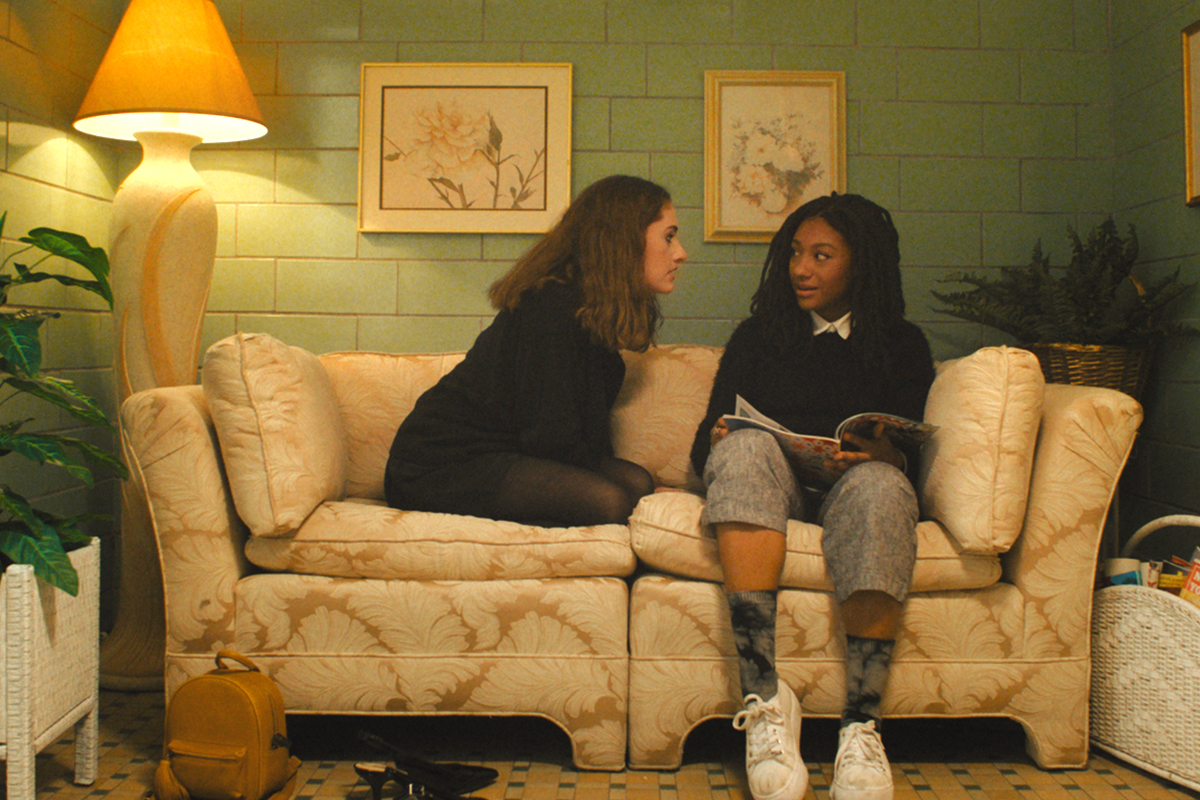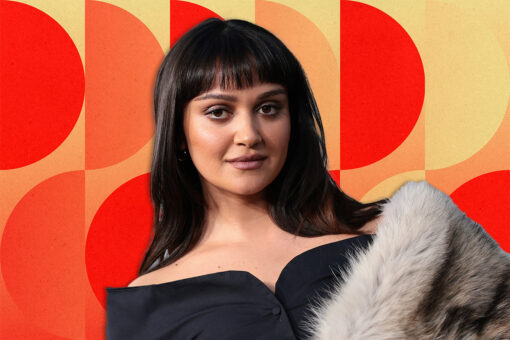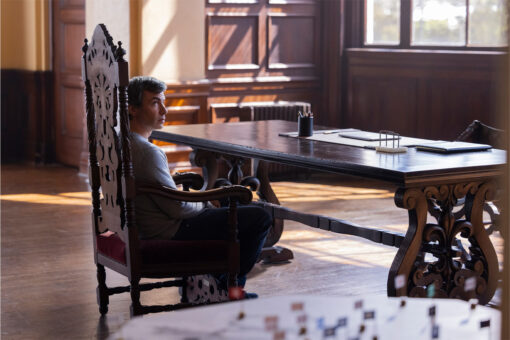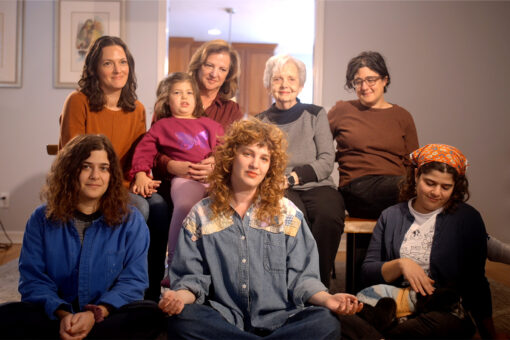It was October 2016. The world hadn’t ended yet, but Jessica Zeidman’s relationship did. No sympathy needed, though — he was a really terrible boyfriend.
“He made me feel very bad for being Jewish, which is crazy because I’ve always loved being Jewish,” Zeidman, 23, told me. “I’ve always been incredibly Jewish.”
When she was given the assignment to create a micro budget film in her screenwriting class at Northwestern University, Zeidman knew she wanted to make a Jewish movie. But, as the granddaughter of Holocaust survivors, she absolutely did not want to make another Holocaust movie.
“I’ve seen like every Holocaust movie,” Zeidman said. “I know the stories and I love them and appreciate them, but there’s so much to the American Jewish experience that is never talked about.”
And so, as a big FU to her borderline anti-Semitic ex, the Brooklyn-based filmmaker dove deep into her Jewish identity and queer sexuality and experience as a teenage girl for the assignment. Four years after writing the first draft, Zeidman’s movie, Tahara (the title refers to the Jewish cleansing ritual to prepare a body for burial), just premiered at the Slamdance Film Festival on January 25, 2020.
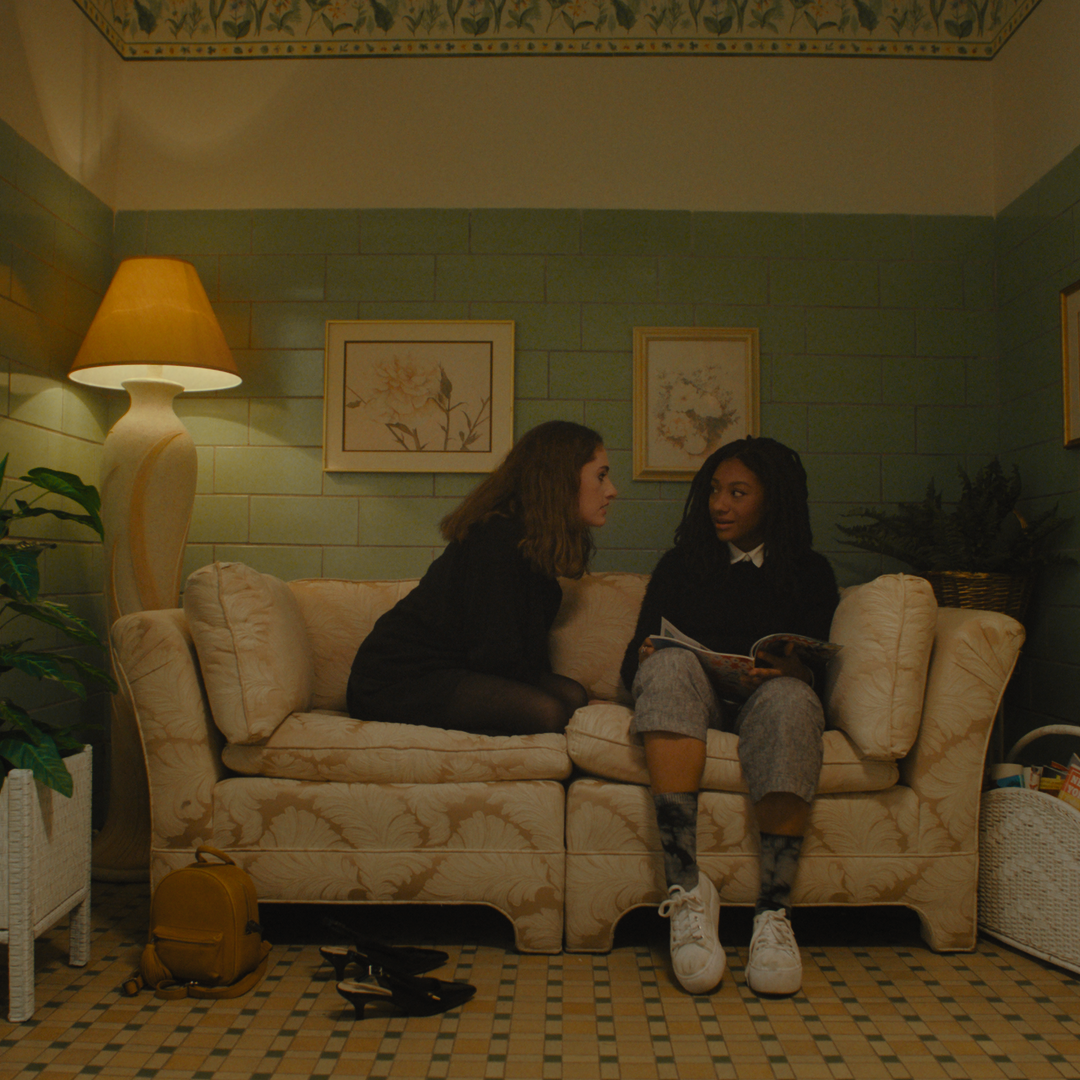
Starring Rachel Sennott as Hannah Rosen, a boy crazy senior in high school, and Madeline Grey DeFreece as her best friend, Carrie Lowstein, the film takes place at the funeral for the friends’ former Hebrew school classmate Samantha Goldstein, who died by suicide. After being pressured to practice kissing in the synagogue bathroom before their Hebrew school lesson on processing grief through faith, Carrie realizes she might be in love with Hannah. A queer coming of age story, Tahara explores teenage lust, friendship, and death, all through a Jewish lens.
Directed by Olivia Peace, it’s an incredibly moving piece of work. From the girls passing notes during the funeral service to the Hebrew teacher scolding Hannah and Carrie for gossiping in the dull yellow-tiled bathroom, the film offers a glimpse into a world rarely seen in the media. Broad City and Crazy Ex-Girlfriend aside, Zeidman casts a magnifying glass on the unique experience of a modern Jewish-American teen.
After an advanced viewing of Tahara — perks of being a journalist! — I spoke with Zeidman about everything from her crazy ex-boyfriend, if Paris Hilton went to synagogue, and the complexities of the Jewish-American teenage experience.
So, how autobiographical is Tahara?
This has never happened to me. I’ve had friendships that have had these sorts of things occur — you know, like, are we friends or more than friends… — but I haven’t had the circumstances of someone ending their own life and going to a funeral service. I did have a huge crush on this girl I went to Hebrew school with. I do not think it was reciprocated. I was like, obsessed with her, and then she transferred schools and I never saw her, and I was like, our love just can’t be! So I do think that was part of it.
That sounds a lot like how Carrie felt towards Hannah, but Hannah was obsessed with Tristian, another Hebrew school student. Do you see yourself in both characters?
I think of Hannah and Carrie as a split version of my personality. I identify as bisexual. I was very, very boy crazy — I think very, very people crazy, to be honest — but because I grew up in such a heteronormative high school, the thing to do was to be obsessed with boys, so I really went full throttle boy crazy. I just remember being in love with every boy, and having all these crushes on all these girls, and sort of just being crazy about everybody. So I think of it more like the two sides of myself fighting. I think it’s so easy to be confident and want to be like Hannah and want to be manipulative, crass, and funny, but I feel like most of the times I’m like Carrie and I feel like people are fucking with me. I feel like I’m just trying to make people happy and do what they want, and then not even realizing my own feelings or my own stake in the game.
You filmed Tahara at your childhood synagogue where you went to Hebrew school. Was that really important for you?
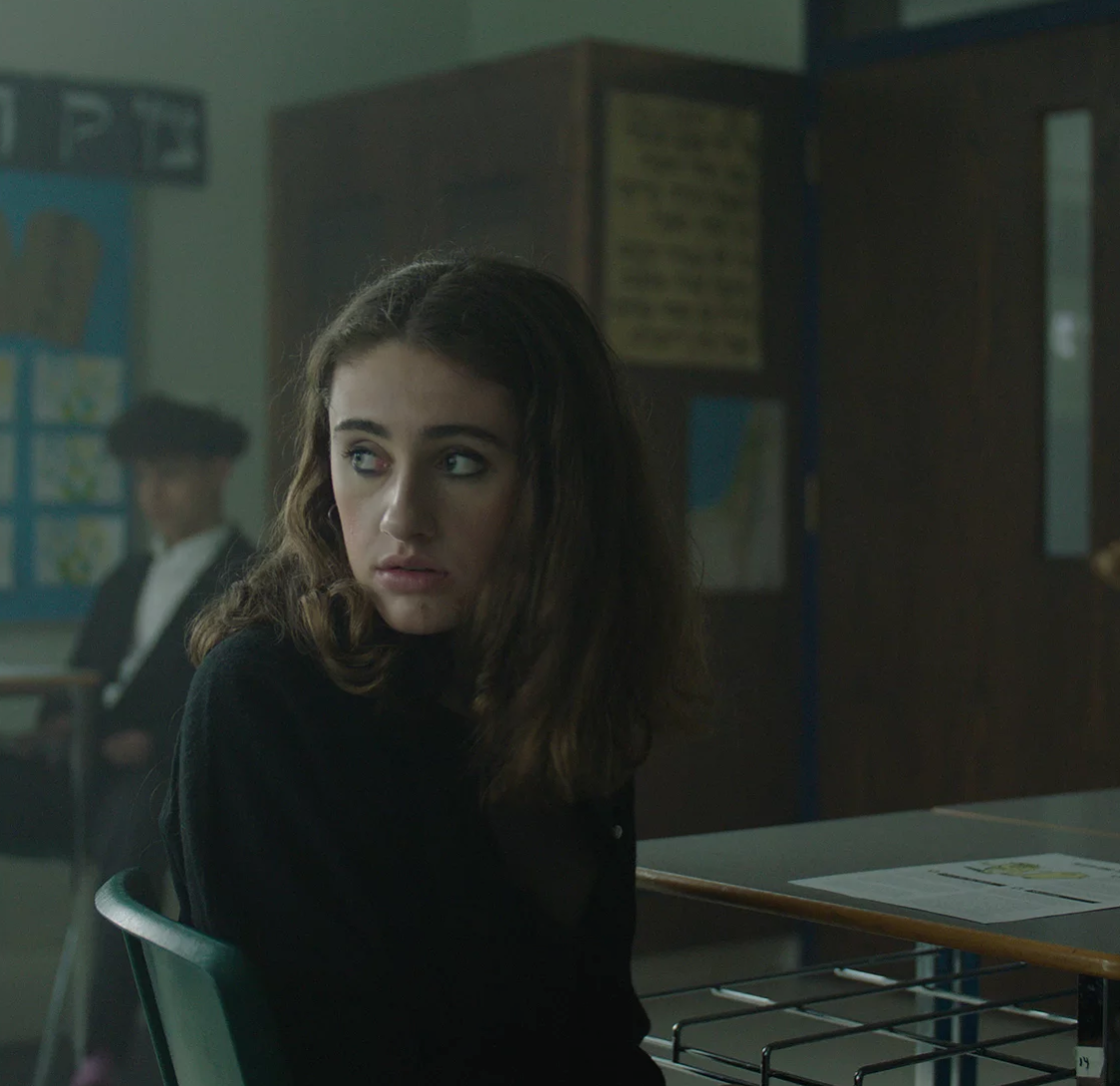
Hebrew school was torturous. It was just like, I just got done with school, and now I’m at another school. But they let us film there for free, which was really, really nice. I always wanted to make this movie at my specific synagogue, and the scenes were written to be at where they are. So that lady’s lounge is right out of the ‘50s when they synagogue was built, with the green tile and everything. I can’t imagine it any other way.
The movie starts and ends with focusing on Hannah’s black leather heels. Talk to me about the symbolism.
It’s like a very silly, sexy, black leather patent kitten heel, right? It’s like, why did you wear this to synagogue, ever? But [Hannah] is thinking of the [funeral] as an event. From the minute she gets there, she’s realizing she’s wearing the wrong thing. You know, she’s dragging her feet. She’s trying so hard to be someone she’s not yet. And that is whatever the black patent leather kitten heel means to the teenage brain, which I remember being like, those shoes mean I’m hot shit and that boys like me and that I can dress in this very 2000s idea of what’s super sexy and what Paris Hilton would wear out on the town.
Imagine Paris Hilton at synagogue…
Oh my God, if only. She’d have to cover the shoulders, it’d be a whole thing. But by the end [of the movie], when her shoe sort of breaks a little and she’s lost her footing, it shows that it was never the right fit — using one’s sexuality to have, as a full identity, a sexy teen. As much as teens want to be sexy teens, and I wanted to be a sexy teen, like, that’s not what a personality is. That’s not how you go through life. When she loses her footing at the end, it’s sort of the idea that this image [Hannah] is trying to project is not the right path.
Let’s talk about Samantha, the character who’s never seen but who the movie is about. She died by suicide and her Hebrew school classmates attend the funeral where she’s memorialized in public as a “horse girl,” and, under the teens’ breath, as a lesbian. Why did you choose to make Samantha a queer horse girl?
It made me think about the people that we gossiped about when we were that age. It’s just so easy to pick on. It’s so easy to categorize someone as a horse girl and then just let it stop there. You know, not look any deeper and not think harder. Just to be like, “Oh, weird, okay, she loves these animals.” It’s not thinking like, “She’s my classmate, she’s another member of the community, she’s somebody who has a full personality.”
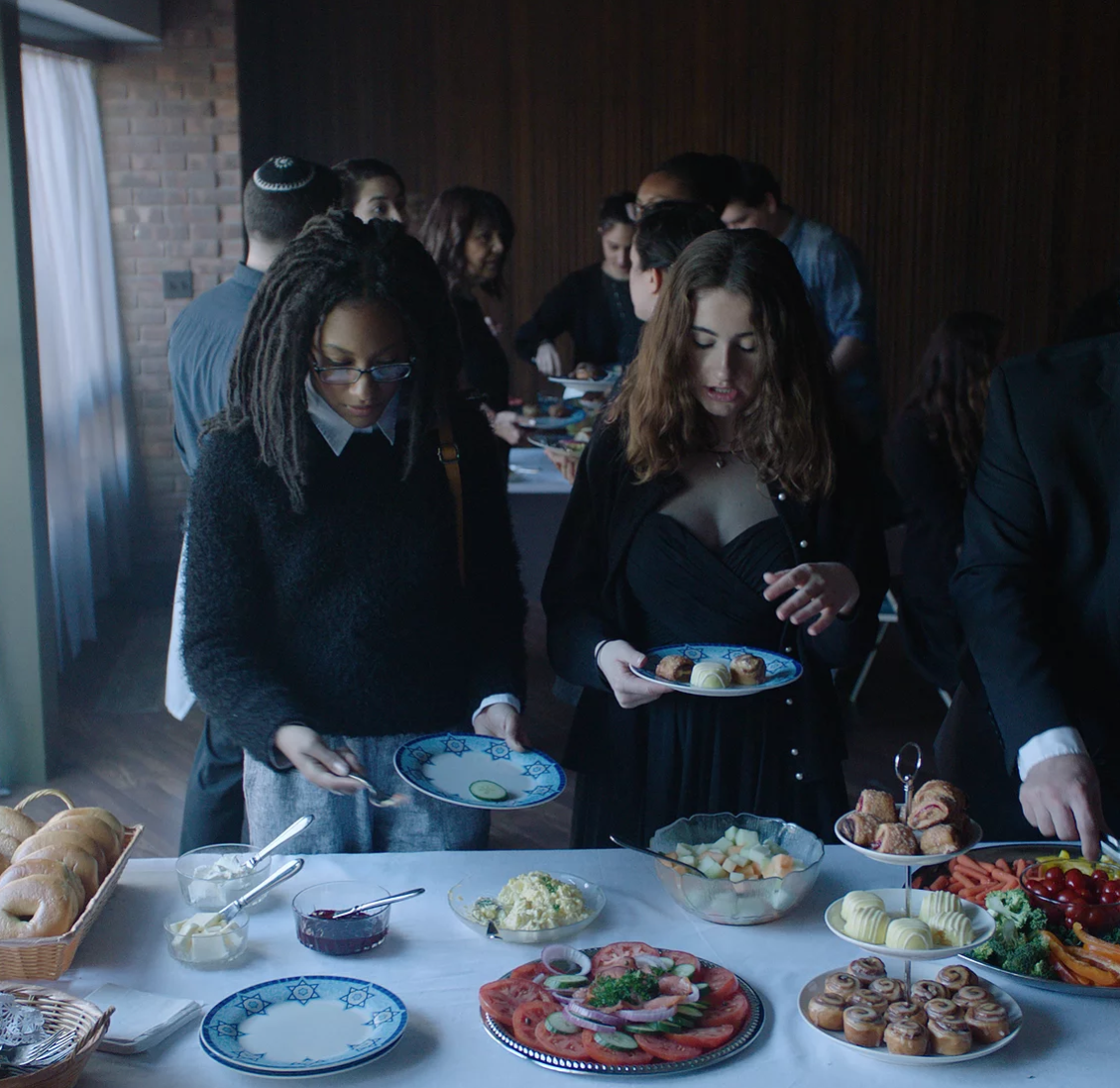
When I think about how we process grief — and I’m 23, I’m not even that much older than they are in this movie — it’s sort of like you cling on to the most obvious things when you don’t know somebody else, and you just can’t go deeper because it’s scary to think deeper. It’s scary to think of them as someone like yourself. And so those sort of categorizations… it’s like, she was the horse girl, and I’m not. And it furthers the divide between what she’s like, and who they are.
One of my favorite things about this film was the representation. The cast and characters were diverse, queer, female focused, and included a range of religious beliefs. Was that intentional?
I think the way people categorize Jewish people in the media is like, there’s the Marvelous Mrs. Maisel, and there’s Broad City, and even though a lot of those pieces of media I love and adore, that’s not what every Jewish community looks like, at all. It means a lot to me as a queer Jewish person to make sure that my Judaism is as intersectional and inclusive as possible. I’m really of the school of thought that if people want to be Jewish, they should find the ways and access those communities if they can, and everyone should be welcoming.
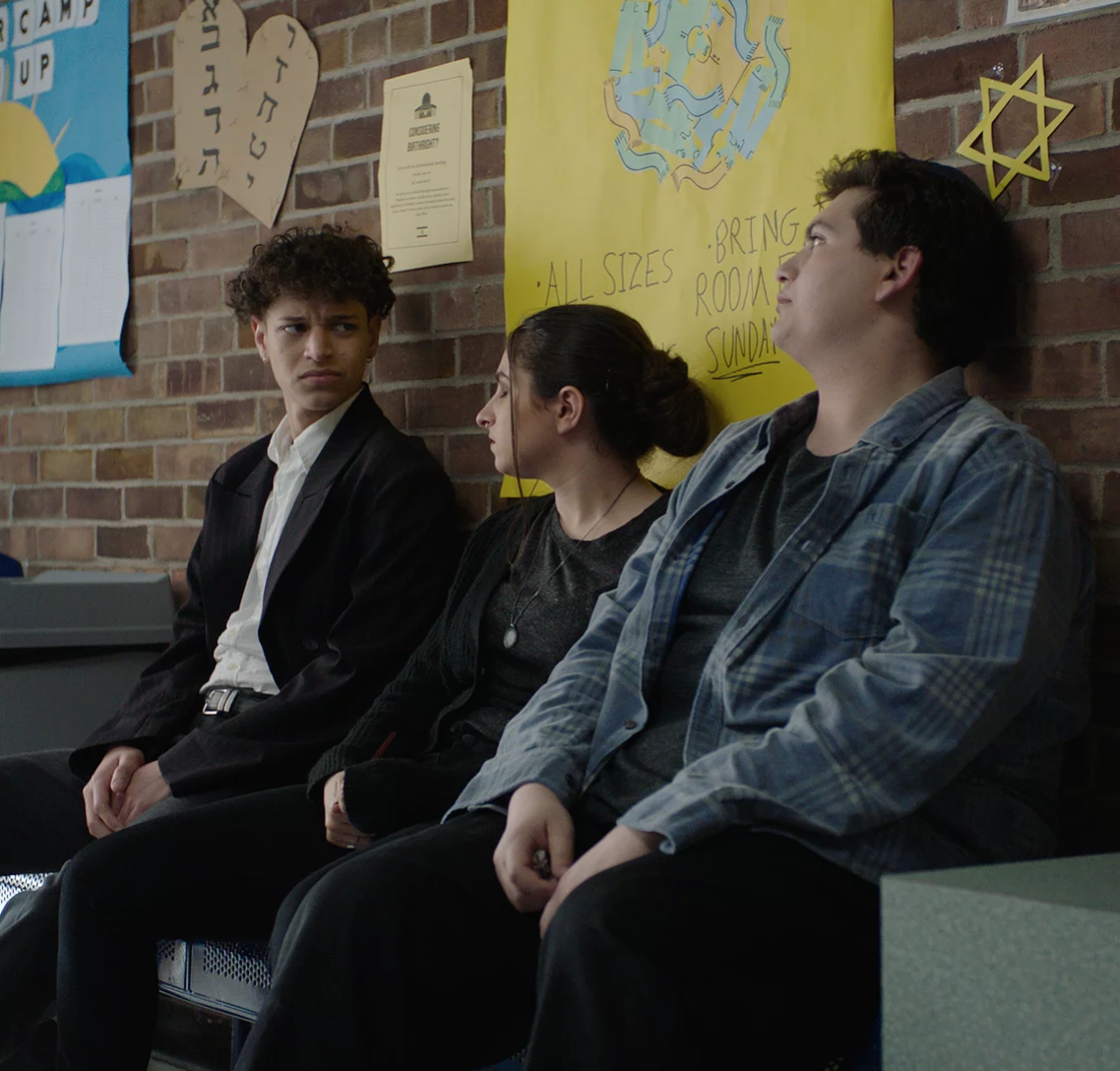
It was important to our director, Olivia —she’s a queer Black woman — that we could both find real deep access points into this film. Every draft she dredged she was like, “I always thought of Carrie as a Black woman,” and I was like, “You know, me too!” I never thought [the characters] had to look a certain way. I never thought they had to be a certain stereotype of what we think a Jewish person in America is.
What message do you want your audience to take away from Tahara?
I want people to realize that not every single Jewish movie has to be about the Holocaust. I feel like that can be my tagline.
Lol, truly!
And also that female friendships are so beautiful and powerful, but they can also be incredibly toxic, and incredibly hard, and incredibly intense in ways that the coming of age genre, and also being a teenager, doesn’t represent. You know, you see the catty fights and fake high school hallways, but you don’t see the stuff that happens when you fuck something up with your best friend. It’s just, you can’t totally come back from that. It feels like your world is in a freefall; you care about [this person] more than anything in a way that is not like family, and not like a lover, it’s like this in between, intense space. That person did something and they hurt you, and whether they intended to or not, it still is a kind of pain that really just speaks to the largest experience of being a woman and needing people on your side, and needing people to support you, and then not having that person.
